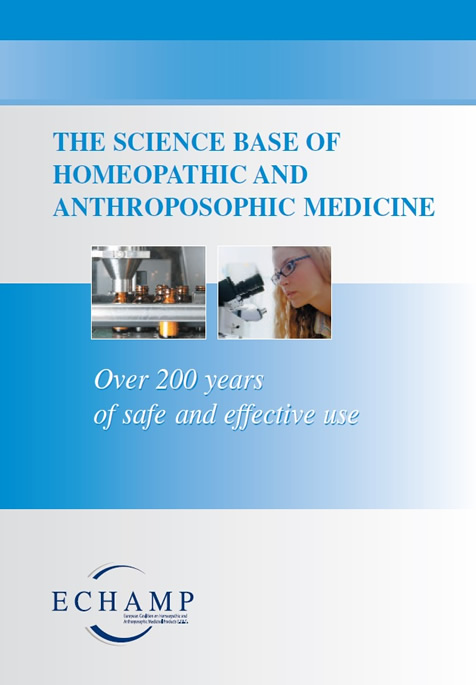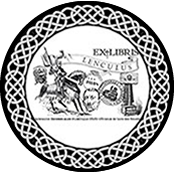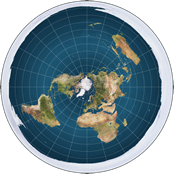
The science base of Homeopathic and Anthroposophic medicine
Over 200 years of safe and effective use
ECHAMP - 2005
European Coalition on Homeopathic and Anthroposophic Medicinal Products E.E.I.G.
“Homeopathy is a system of medical practice aiming at methodologically improving the level of health of an organism by the administration of potentised medicines, which are selected in accordance with the Law of Similars”
Dear reader,
Since homeopathy was initiated and developed by Samuel Hahnemann about 200 years ago, there has been extensive documentation of clinical experience with this form of therapy. However, more scientific publications including randomised clinical trials (RCT) according to internationally accepted standards have only a relative short history. Systematic reviews of such trials only began around 1990 when, amongst others, Kleijnen (1991), Linde (1997), and later Jonas (2003) were able to show sufficient evidence to support effectiveness of homeopathic therapy.
An important point of consideration in homeopathic research is the need to increase the quality of the documentation. This requires substantial funding which is generally only available in exceptional cases, as manufacturers of homeopathic medicinal products are seldom strong enough to invest substantially in research, since patent protection is not available for medications which have been known for decades. Furthermore, the European Union and National Government Institutions very rarely provide funding for homeopathic research. This is surprising, considering the benefit of the low-cost of homeotherapy and the fact that it is a basically safe medicinal alternative to chemical drugs. The high degree of popularity in patients and health care providers would warrant a stronger engagement on their part.
The NIH (National Institutes of Health) in the United States is an encouraging example of how health politics can deal with clear evidence of positive effects of Complementary Alternative Medicine (CAM) - including homeopathy - on public health.
The Traditional Medicine (TM) section of the WHO is also engaged in guiding their member nations into a quality and safety-oriented understanding and employment of CAM therapies, including homeopathy. A specific review of the evidence base for homeopathy is intended for publication before the end of 2005, supported by the Region of Lombardy and the University of Milan. These are important examples of the increasing significance of homeopathy in public health.
The regulatory environment for homeopathic and anthroposophic medicinal products within the European Union is improving slightly. A first attempt to start a common market for homeopathic products was intended by the end of 2005, when mutual recognition of homeopathic medicines will be possible. This is only a modest, bureaucratic and incomplete start, enabling Europeans to receive free access to only a group of homeopathic medicines. Many products which have a therapeutic claim on their label remain excluded from that procedure. These will be available under national rulings of a few EU Member States only, basically only where they have traditionally been used. Under the present European legislation they will still be excluded from EU-wide mutual recognition.
As yet, no acceptable proof of the working mechanism exists. There are some promising hypotheses, but the lack of a valid explanation, as to why dilutions beyond the presence of a molecule can have a therapeutic effect, still breeds scepticism.
Despite all the evidence, scepticism not only blocks progress in science but also in health politics.
Conservative policy makers follow the sceptics rather than listen to the voice of the millions of citizens who are being deprived of safe and effective homeopathic medicines.
The aim of this brochure is to help interested politicians, NGOs and also journalists to obtain a better picture of the value of research in homeopathy - for the sake of public health, for an improved disposition towards funding of research in this promising field of health care and for the recognition of the needs of all those practitioners and consumer/patients looking for a legitimate alternative.
Max Daege
President of the European Coalition on Homeopathic
and Anthroposophic Medicinal Products,
Brussels, September 2005
Medicine on Aryana Libris
Anthroposophy on Free PDF



